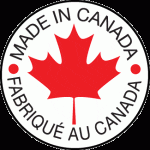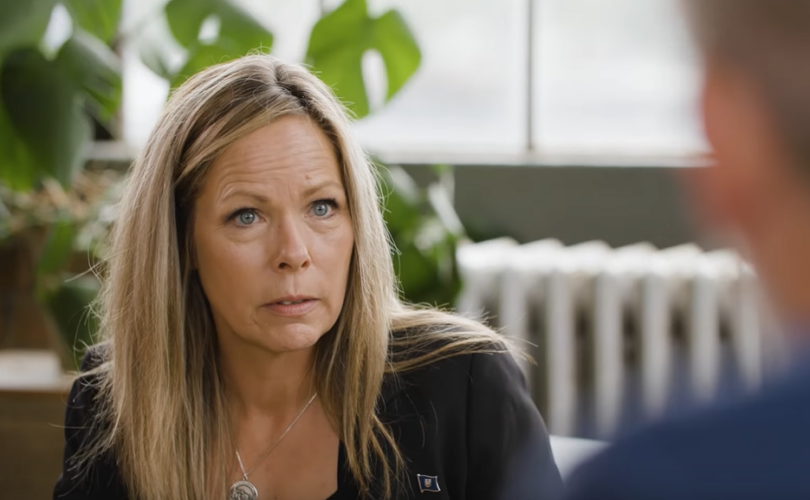The much-anticipated trial of Canadian Freedom Convoy leaders, Tamara Lich and Chris Barber, is scheduled to commence on September 5 in an Ottawa courthouse, situated near the very location where the historic protests against COVID mandates unfolded. This trial, as highlighted by the Democracy Fund (TDF) in a recent press release, holds immense significance in both Canada’s legal and social spheres.
The Freedom Convoy: A Defining Moment
In early 2022, the “Freedom Convoy” drew thousands of Canadians from all corners of the country to the nation’s capital, Ottawa. Their united demand: an end to COVID mandates in all their forms. This peaceful protest marked an unprecedented chapter in Canadian history, reflecting the depth of public sentiment.
Tamara Lich’s Legal Battle
Tamara Lich’s prosecution has sparked considerable public interest and concern. Alan Honner, TDF’s director of litigation, aptly points out that her case sheds light on how a prominent political dissident is treated within our justice system. Many view Lich as a political prisoner, given the impassioned pursuit of relatively minor charges against her, resulting in a 49-day stint behind bars. The Freedom Convoy incident exposed the government’s readiness to employ extraordinary powers to quell a nationwide protest that remained remarkably peaceful.
A team of dedicated TDF lawyers is committed to providing daily real-time insights and updates directly from the courtroom throughout Tamara’s four-week trial. To ensure a robust defense, the TDF is actively crowdfunding Lich’s legal expenses, and she is being represented by the seasoned Ottawa criminal lawyer, Lawrence Greenspon.
The Role of Justice Centre for Constitutional Freedoms (JCCF)
Lich’s legal defense is not limited to the TDF alone. The Justice Centre for Constitutional Freedoms (JCCF) continues to support Lich and several other truckers who are facing legal action, including lawsuits from Ottawa resident Zexi Li. This collaborative effort underscores the magnitude of the case and the need for comprehensive legal representation.
Chris Barber’s Legal Battle
While Tamara Lich enjoys the backing of organized fundraising efforts, Chris Barber relies on local fundraisers to secure his legal defense. The trials of both Lich and Barber bear immense weight, considering Lich’s role as a prominent figure in the protest movement.
Recent Developments
In a recent turn of events, charges against Freedom Convoy protestor Eric Lemmon were dropped, marking a noteworthy development in this legal saga.
In June, Tamara Lich engaged in an extensive interview with renowned Canadian psychologist Jordan Peterson. During the interview, Lich shared her journey of questioning the government’s handling of COVID-19, citing insights from experts like Dr. Byram Bridle, Dr. Peter McCullough, Dr. Robert Malone, and others. Her growing skepticism about the government’s approach, which included lockdowns, mask mandates, and vaccine passports, fueled her activism.
Legal Proceedings
Tamara Lich’s initial arrest on February 17, 2022, closely followed Prime Minister Justin Trudeau’s enactment of the Emergencies Act. Trudeau later revoked the Act on February 23. Lich and Barber faced multiple charges, including mischief and obstructing police, related to their involvement in and organization of the Freedom Convoy. Lich’s detention, primarily on non-violent mischief charges, lasted for weeks and was ultimately criticized by Ontario Superior Court Justice Andrew Goodman.
Post-Release Conditions
Although granted bail in August, Tamara Lich remains subject to specific conditions, including refraining from any support for activities related to the Freedom Convoy, residing in her home province of Alberta, and refraining from using social media.
Support for Lich
Tamara Lich enjoys substantial support in her home province of Alberta. Her appearance in the Alberta provincial legislature in Edmonton received a warm round of applause from many Conservative Members of the Legislative Assembly (MLA). Some perceive Lich and the Freedom Convoy as a turning point in Alberta politics, coinciding with the replacement of then-Premier Jason Kenney by Danielle Smith as premier of the province and leader of the UCP. This leadership change followed a period during which numerous healthcare and government workers lost their jobs due to their refusal of experimental COVID jabs.
Conclusion
As the trial of Tamara Lich and Chris Barber approaches, it stands as a pivotal moment in Canadian legal and social history. The public’s interest and support for these individuals reflect the profound impact of their involvement in the Freedom Convoy movement. The outcomes of these trials will undoubtedly continue to shape the narrative surrounding COVID mandates and government response in Canada.










